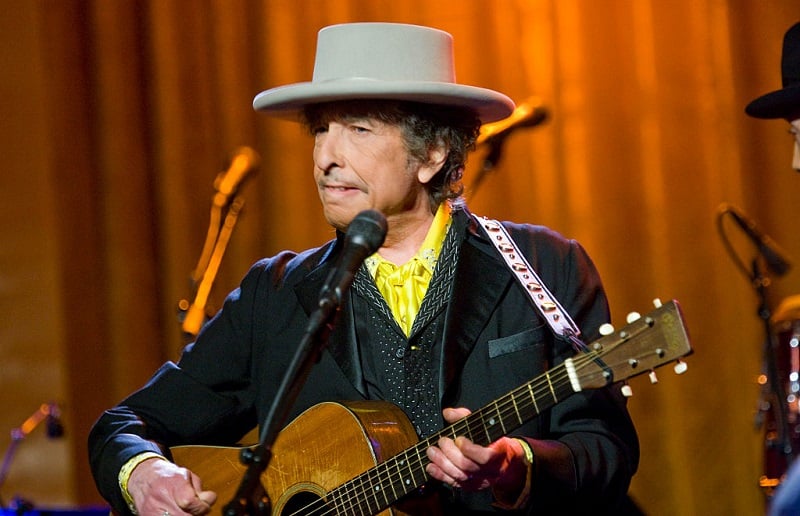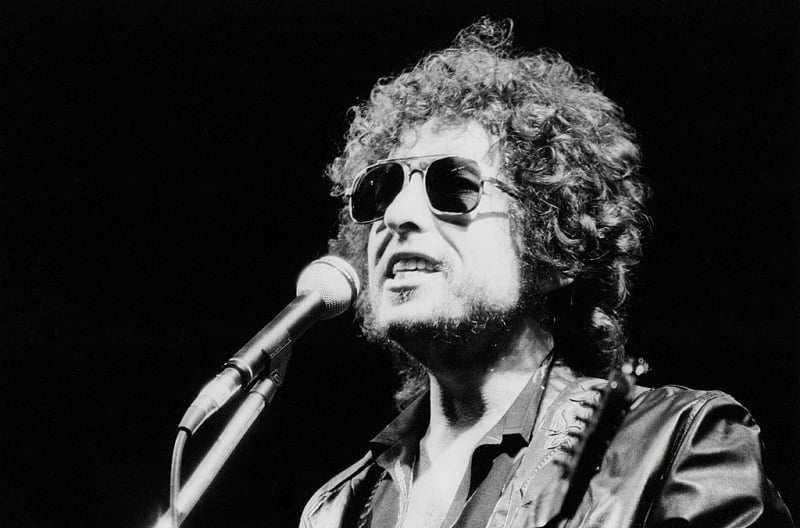Bob Dylan’s Epic New Song Starts With JFK’s Assassination and Goes Bigger From There
If you were among those music fans waiting for new material from Bob Dylan, you had quite the wait. Prior to 2020, the last time the Nobel Prize-winning singer-songwriter released an album of original songs was 2012, when Dylan dropped Tempest to the usual acclaim and commercial success.
After Tempest, Dylan released three albums full of tracks from the popular America songbook. (Shadows in the Night, from 2015, featured songs made famous by Frank Sinatra.) But the streak ended March 27, when Dylan released “Murder Most Foul” online for free for all fans.
Described by Dylan as “an unreleased song we recorded a while back that you might find interesting,” it had to come as a surprise for a number of reasons. For starters, the murder in question was the 1963 assassination of John F. Kennedy.
But Dylan didn’t stop there. In the epic track that last 17 minutes, he runs through the golden ages of American music, calling out jazz masters like Bud Powell and Charlie Parker as dropping references to The Beatles and Rolling Stones (among many, many others).
The JFK assassination hangs over ‘Murder Most Foul’

“Murder Most Foul” starts, quietly and elegiacally, with Dylan reciting mostly spoken verses accompanied by only piano and bowed bass. “’Twas a dark day in Dallas, November, ’63,” Dylan begins. “The day that would live on in infamy.”
From there, he dives straight into details of that November day, with shifting, unnamed narrators (the assassination plotters among them) and scenes from the gruesome event. “Murder Most Foul” is stocked with references, and Dylan doesn’t exclude his own body of work.
“Wait a minute, boys,” Dylan sings early on, echoing a line from “Hurricane,” his 1975 epic about another wronged man. As a violin and subdued percussion join in, Dylan continues painting images of JFK’s demise in Dallas.
From that scene, Dylan pulls the lens back set the assassination in popular culture. A few months later (February 1964), the Fab Four would take America by storm with their first No. 1 single. “Hush little children, you’ll understand. The Beatles are coming, they’re gonna hold your hand.”
And Dylan begins weaving in pictures from Dallas and the wave of music in the late ’60s and beyond. But there are still another 14 minutes to go at that point in “Murder Most Foul.”
Bob Dylan brings in cultural references from across the past century

Over the years, Dylan fans have come to recognize the many faces of the songwriter-poet. He can jump into and out of character; toss off lines worthy of mockery; then come up with remarkable insights and turns-of-phrase, all in the space of 30 seconds.
In “Murder Most Foul,” Dylan is as playful and assured as ever. “I’m just a patsy, like Patsy Cline,” he sings about halfway through. Hearing that Lee Harvey Oswald reference and shout-out to the legendary singer, you just have to chuckle what Dylan can get away with. (He earned it so many decades ago.)
He doesn’t let up in the final eight-or-so minutes. Dylan starts reciting classic song titles (“Only the Good Die Young,” “St. James Infirmary Blues”), great musicians (Guitar Slim) and performers (Marilyn Monroe), and JFK-associated figures (Jack Ruby) alike.
Jazz fans will enjoy the section when Parker (Bird), Powell, Art Pepper, and Oscar Peterson appear. But Dylan also drops references to the Eagles, Queen, Stevie Nicks, and The Who. Indeed, there’s something for every Dylan fan here, and it couldn’t come at a better time for folks who like digging through the songwriter’s lyrics.
Also see: The Classic Line Jimi Hendrix Had About Bob Dylan’s Voice


